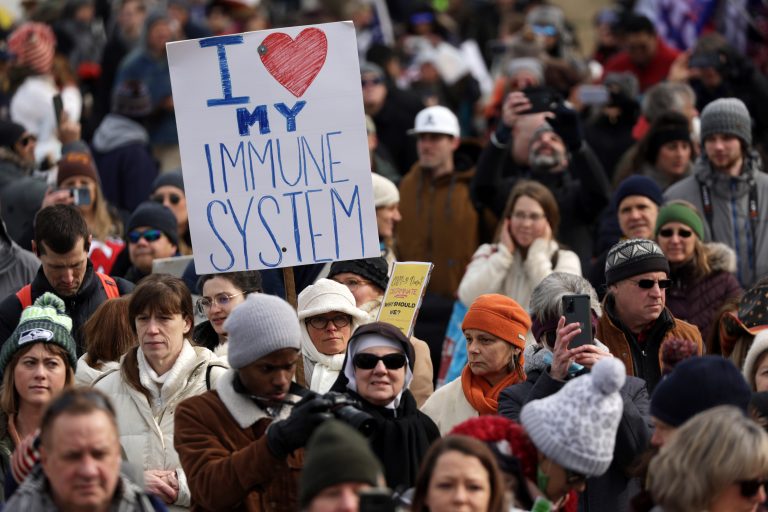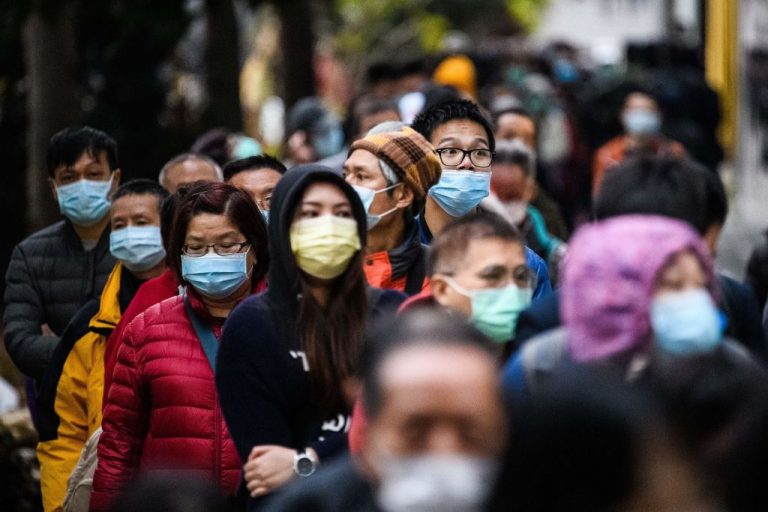A new study published by the U.S. Centers for Disease Control and Prevention (CDC) shows that protection from vaccines against COVID-19 has fallen after the emergence of the Omicron variant.
According to the Feb. 4 report, the infection gap between the vaccinated and unvaccinated has sharply narrowed. The study observed individuals from Los Angeles County who were infected with COVID-19 between Nov. 7 and Jan. 8.
When the Delta variant was the dominant COVID-19 strain in the United States, the number of infections and hospitalizations among unvaccinated individuals were 3.8 times and 12.9 times higher, respectively, than vaccinated people. The gap was even wider when unvaccinated individuals were compared to vaccinated people who had also taken booster shots. For unvaccinated individuals, infections and hospitalizations were 12.3 times and 83 times higher, respectively, than booster recipients.
Once Omicron became a major COVID-19 strain, this gap has significantly narrowed. Infections and hospitalizations among unvaccinated was only two and 5.3 times higher, respectively, than vaccinated individuals. When compared to those who had received boosters, unvaccinated infection and hospitalization numbers were only 3.6 and 23 times higher, respectively, the study showed.
“It seems as though some people were more susceptible, even if they had been vaccinated, with Omicron than they had been with Delta, and even more so than with the previous variants… Although you can still get COVID even if you’re vaccinated, as we had hoped, the vaccines are still good for protecting against severe disease. And, in particular, I think there have been some questions about boosting and whether it was necessary,” study co-author Dr. Sharon Balter told The Epoch Times.
Success
You are now signed up for our newsletter
Success
Check your email to complete sign up
Some questionable studies have encouraged people to take booster shots to protect against new COVID-19 strains due to lowering immunity of the earlier vaccines. However, data from people who have taken booster shots shows the opposite: the boosters offer poor long-term protection. Even though immunity is high in the beginning, such protection ends up waning just a few weeks or months after administering the dose.
A Danish study published in December shows that Omicron spread faster than the Delta variant among those who are fully vaccinated. The spread of Omicron was observed to be the fastest among individuals who had received boosters. The study suggests that Omicron has a better ability to evade vaccine-induced immunity. The susceptibility of unvaccinated individuals to Omicron was about the same as those who were vaccinated.
“Comparing households infected with the Omicron to Delta VOC, we found an 1.17 (95%-CI: 0.99-1.38) times higher SAR for unvaccinated, 2.61 times (95%-CI: 2.34-2.90) higher for fully vaccinated and 3.66 (95%-CI: 2.65-5.05) times higher for booster-vaccinated individuals, demonstrating strong evidence of immune evasiveness of the Omicron VOC,” the study stated.













